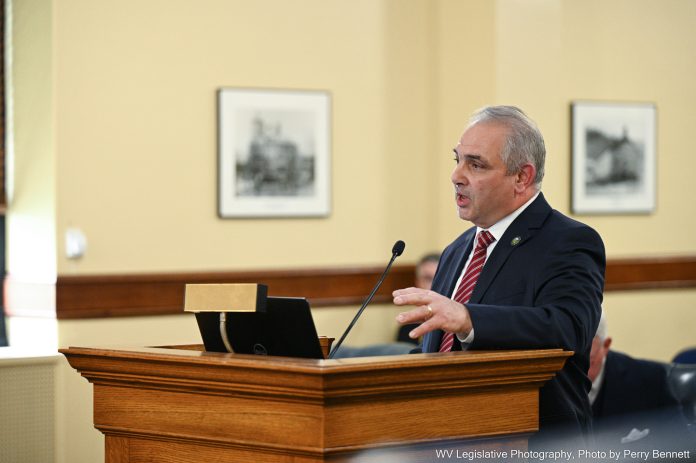Bob Martin, director of the State Resiliency Office, briefed members of the Joint Legislative Committee on Flooding Sunday afternoon regarding his office’s plans to implement a recently passed flood resiliency law.
The law, Senate Bill 677, was passed by the Legislature during the 2023 regular session and signed into law by Governor Justice late last month.
The legislation requires the state resiliency officer to submit a new Flood Resiliency Plan by June 30, 2024, and then every two years after that going forward. The bill also allows for 6 percent of Community Development Block Grant disaster recovery funds received by the state to go toward flood resiliency planning and implementation. The bill was authored by Flood Committee Chairman Chandler Swope ( R-Mercer, 06).
Swope said he believes flood mitigation needs to be looked at as infrastructure. Martin agreed, calling flood mitigation the state a “baseline for economic development.”
“We can control the water and utilize it to our good and bend it to our will, we’ll get there,” Martin said. “We’ll create schools that don’t flood regularly, and we’ll have children who want to come back and stay in the state because they didn’t live and grow up in a flooded area; business, industry and homes that don’t flood regularly.”
The bill creates the West Virginia Flood Resiliency Trust Fund within the State Resiliency and Flood Protection Act. The fund will be used to encourage local governments to work on flood protection and prevention projects. It would prioritize low-income geographic areas and prioritize nature-based solutions, using the local environment and features to protect against flood damage.
The qualifications to be the state resiliency officer are enhanced in the bill, requiring the officer to have prior experience with developing disaster resiliency plans, community economic development and regional planning. The legislation also allows the officer to hire additional staff as needed and to lead long-term recovery planning efforts in the event of a state of emergency or federal disaster declaration.
The bill also gives the state resiliency officer authority over the West Virginia Disaster Recovery Fund currently administered by the Division of Homeland Security. The fund can be used to provide money for disaster recovery for people, local governments, emergency services and local organizations. The legislation includes $10 million for the fund, which can be replenished each year.

